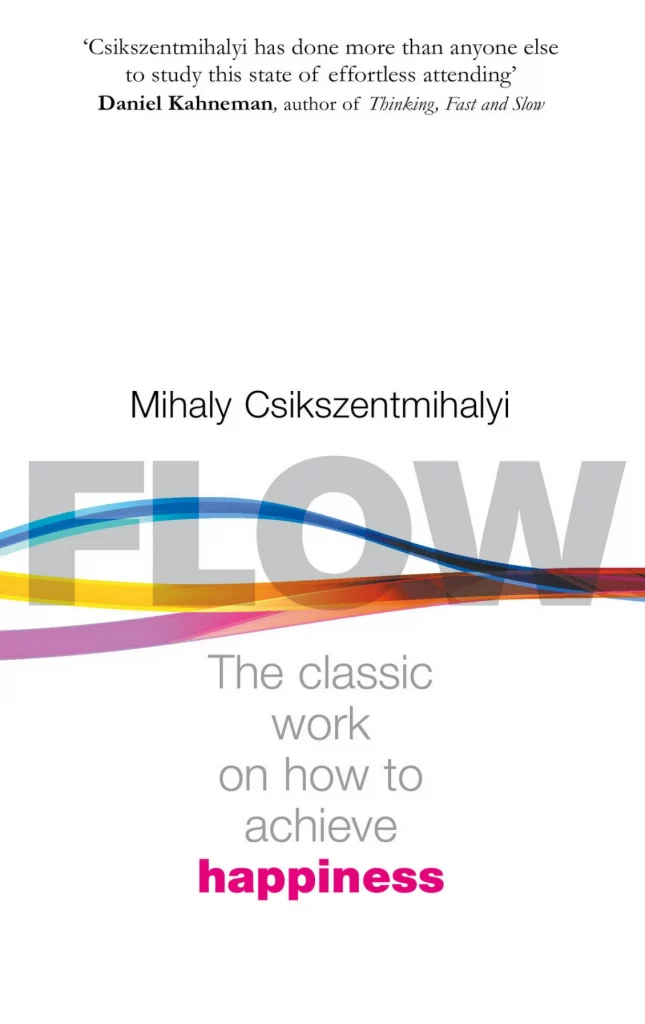Flow: The Psychology of Happiness summary

Book: Flow by Mihaly Csikszentmihalyi
Reach the highest pleasure, mastery, and productivity by picturing your tasks like games, with clear and achievable goals rewarding new capabilities, where you feel in control with clear rules and fast feedback.
Video games are designed around these principles, and you can reframe your goals to make them feel like an exciting game.
What is flow?
- Flow is a state of intense pleasure and maximum productivity when you are doing something passionately.
- Flow is the same feeling as playing games. Time flies.
- You can put yourself in a state of flow, with a couple of conditions.
How do you get in the flow?
You need several things at the same time:
- Goal. You need an objective that is clearly defined (ex: I want to code a Sudoku in C++), not vague (I want to learn C++) nor too broad (I want to learn how to code). You can set it yourself. The key is that your goal definition must clearly state where is the finish line exactly.
- Difficulty. You must feel capable of achieving it. A goal that feels too hard would be discouraging, and a too easy one would be boring. If your goal looks too hard to you, find one that looks easier. If it looks too easy, make it harder. It’s all about how you perceive the goal and your abilities, independently of the real goal difficulty and your real skills levels.
- Reward. This goal must focus on raising your capabilities (ex: skills) and not an external motivator (ex: money).
- Rules. They must be clear. You can set them yourself, but you need some. Too many ways of achieving something make the challenge less exciting. Sometimes adding strict rules make it easier because you just have to follow a narrow path, and it might help in removing paralysis by analysis.
- Control. You must feel in control of your progress, not that your progress or outcome depends mostly on luck. Pick goals that depend mostly on you (ex: finding one new place to promote your product every day), and not on things that feel outside your control (ex: making money).
- Feeback. You must have quick feedback on how things are going, so you can adjust. The longer the feedback time, the more discouraging will be the challenge.
Questions to help you get in the flow
Goal
- What’s my goal? What do I want?
- How can I make the finish line clearer?
Difficulty
- How can I make it ten times more ambitious?
- What scares me the most about that goal?
- How can I make it feel achievable?
- Where can I learn new techniques to help me?
Reward
- Why do I want to do this? What’s in it for me?
- How is it going to change my life?
- What new capability will it bring?
- What excites me the most about that goal?
Rules
- How can I make it fun, like a game?
- What are the rules? What can I do and can’t do exactly?
- Is there rules or constraint I can remove to make it more interesting?
- Allowing more time, more ways?
- What constraints could I add to make it more interesting?
- Allowing less time, fewer ways?
Control
- How can I track my progress toward that goal?
- How can I reframe it to depend less on things outside my control?
Feedback
- How can I get faster feedback on my progress?